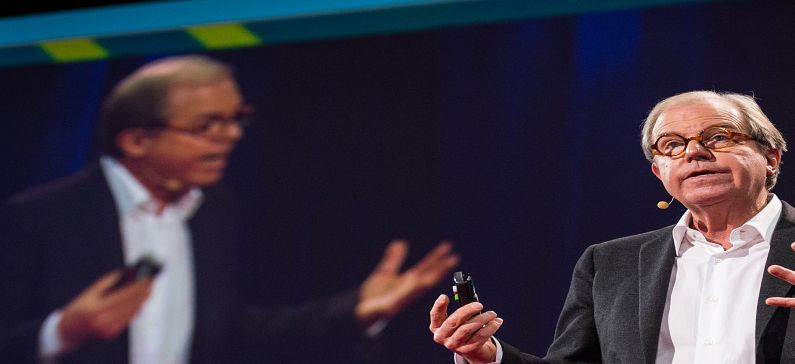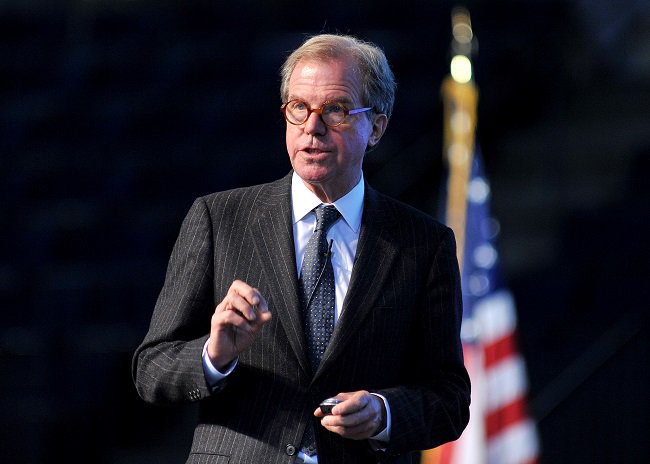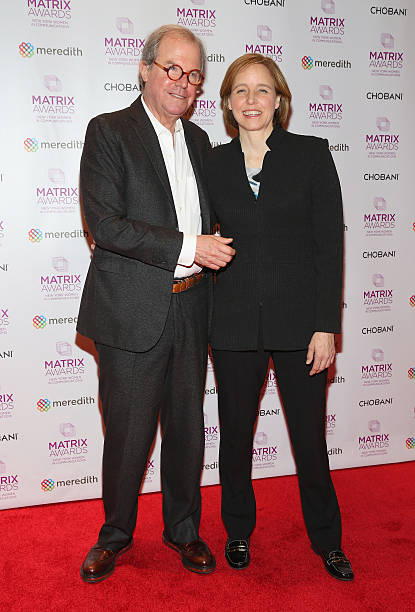
The computer science guru
Nicholas Negrοponte is a Greek-American architect, computer scientist, entrepreneur and the founder of the Media Lab of the Massachusetts Institute of Technology (MIT). In addition, he is the founder of the Organization, a Laptop Per Child, and became known for his book, “Being Digital” (1995), which described a future in which digital technology would become a close part of everyday life.
He is a world-renowned technology visionary with an understanding of technology and its impact on business and society and an excellent speaker. The wide range of experience and the full understanding of digitization and its impact on industry make it the main principle for transformations that shape our future.
Negroponte was born to a wealthy Greek shipping family and lived in Le Rosey, Switzerland, London, and New York as a child. In 1961, he attended MIT in Cambridge, Massachusetts, to study architecture. In 1966, Negroponte graduated from MIT with a master’s degree in architecture and joined the faculty there. Over the next few years, he also worked as a visiting professor at Yale University, at the University of Michigan and the University of California at Berkeley.
In 1967, he founded the group of Architectural Engineering at the Institute, where the subject of the group’s research was the search for new methods in human-computer interaction, and later, in 1985, Negroponte created the MIT Multimedia Lab with Jerome B. Wiesner, as well as with the help of Michalis Derouzos of the Computer Lab. Under his direction, the lab gained prestige and became well-known for its multimedia technologies and the advanced human-computer interaction methods it has created.
Negroponte also became a strong supporter of the idea of intelligent agents and electronic newspapers and created the term Daily Me, referring to the role of technology to offer amenities and services tailored to the needs and desires of every individual.
In the 1980s, he predicted that wired technologies such as telephones would become unwired by using airwaves instead of wires or fiber optics and that unwired technologies such as televisions would become wired—a prediction commonly referred to as the Negroponte switch.
In 1992, In 1992, Negroponte became involved in the creation of Wired Magazine as the first investor. From 1993 to 1998, he contributed a monthly column to the magazine in which he reiterated a basic theme: “Move bits, not atoms.” Negroponte expanded many of the ideas from his Wired columns into a bestselling book “Being Digital”.
In 1995, that book was published, in which he described and anticipated a future composed of digital bits that would be distinct from the archaic analog world comprising objects, or “atoms.” He predicted that the things in the world of atoms, such as newspapers, books, films, and cars, would largely continue to exist but would be substituted by digital bits in the form of new media. Most in the digital community agree that Negroponte was on target with his central insight—that bits will transform video, text, audio, and photography into a single unified medium – and so the book was a great success, translated into 40 languages, and made him famous.
In 2000 Negroponte took a leave from the Media Lab and founded OLPC, which seeks to provide laptop computers to the estimated 100 million children worldwide who are uneducated because of a lack of schools. OLPC has designed hardware and software to power rugged low-cost laptops for “self-empowered learning.”
OLPC designed hardware and software to power resilient, low-cost laptops for “self-learning”. The program was successful – although the price rose to $ 180 – and computers were distributed to about two million children around the world in 25 languages and 40 nations such as Haiti, Afghanistan, Mongolia, Rwanda, Ethiopia and Palestine.
Believing that the nation’s most valuable resource is its children, Nicholas Negroponte aims to place low-cost, strong, connected laptop technology in the hands of the ones who most need it – the nearly two billion children in developing countries. This revolutionary way of promoting learning began with the construction of five schools in rural Cambodian villages that do not have electricity, telephone or television – but now have a broadband wireless connection.
In addition to his academic and philanthropic contributions, he also served in the private sector on the board of Motorola, Inc. (1995-2009) and as a general partner of a venture capital firm specializing in digital information and entertainment technologies. It also provided start-up funds for more than 40 companies, such as Zagat’s, Ambient Devices, Skype and Velti.
He is an honorary citizen of Patmos and several times visit the island with his family for the holidays, area he has positively influenced since he has invested heavily in the island’s Internet accessibility and its entirely wireless interface, along with another researcher at the Massachusetts Institute of Technology, Michael Bletsas.
His father was the shipowner Dimitrios Negroponte. He also has three other brothers, John Negroponte, who served as Deputy US Interior Minister, Michael Negroponte, who is an Emmy-awarded filmmaker and George Negroponte, who is an artist.





















ΜΥΡΣΙΝΗ ΣΤΑΜΑΤΕΛΟΥ
-05/06/2022 12:19 am
Καλό βράδυ διαβάζω ότι ασχοληθηκατε με τη παροχή υπολογιστών σε παιδιάστη Καμπότζη στην Ελλάδα η εκπαίδευση στην εποχή Covit έγινε με τους υπολογιστές των παιδιών δεν παρείχε τίποτα το κράτος είχαν την απαίτηση χωρίς εκπαίδευση τα παιδιά να γνωρίζουν πως να το χειριστούν, είμαι μητέρα αγοριού με φυσιολογικη νοημοσύνη ΔΕΠΥ 4= γυμνάσιο Πολίχνης Θεσσαλονίκης Γ γυμνασίου παρακολούθησε 7 ώρες ένταξη ,δεν υπάρχουν βιβλία για αυτά τα παιδιά ούτε πρόγραμματα όπως και στο Λύκειο η ίδια κατάσταση τώρα δίνουν εξετάσεις πως θα δώσουν εξετάσεις αυτά τα παιδιά με τη βοήθεια ιδιωτών καθηγητών και των γονιών οι οποίοι χωρίς ικανότητες να τα χειριστούν αποτυγχάνουν απευθύνθηκα στη Δευτεροβάθμια στη Μονή Λαζαριστών ,στο σχολείο,σε σύλλογο δυσλεξίας,στο Συνήγορο του Πολίτη….και όμως αυτά τα παιδιά δίνουν εξετάσεις και τις περισσότερες φορές που έδιναν εξετάσεις ο καθηγητής σχολίαζε να διαβασεις λίγο περισσότερο,αν υπήρχε προγράμμα στον υπολογιστή πόσο εύκολα και αξιόλογα θα ήταν λυπάμαι για την ελληνική πραγματικότητα αυτά τα παιδιά χωρίς γνώσεις , χωρίς ελπίδακαι σεις φτάσατε ως τη Καμπότζη…. μπράβο….. διαπιστώνω ότι είμαστε Καμπότζη …. Ζητείται Ελπίς….Για να γυρίσει ο ήλιος θέλει δουλειά πολύ….καλό βράδυ Σταματελου Μυρσίνη Εύοσμος Θεσσαλονίκη